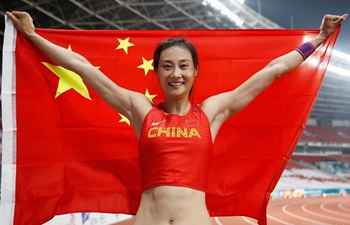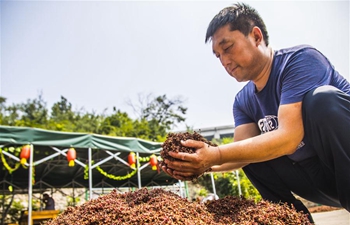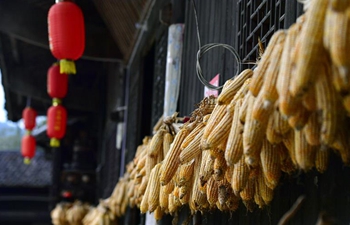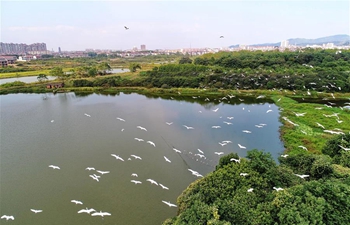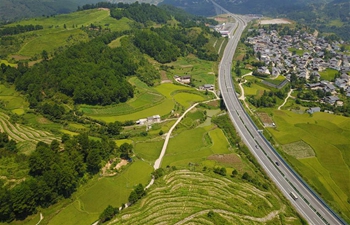
Photo taken on Aug. 23, 2018 shows Chinese Ambassador to Morocco Li Li during an interview in Rabat, Morocco. The Forum on China-Africa Cooperation (FOCAC) Summit to be held in Beijing next month will be "an important accelerator" to promote China-Africa cooperation, and China-Morocco ties in particular, the Chinese Ambassador to Morocco, Li Li, said in a recent interview. (Xinhua)
RABAT, Aug. 29 (Xinhua) -- The Forum on China-Africa Cooperation (FOCAC) Summit to be held in Beijing next month will be "an important accelerator" to promote China-Africa cooperation, and China-Morocco ties in particular, the Chinese Ambassador to Morocco, Li Li, said in a recent interview.
China and Africa are facing both opportunities and development challenges, Li told Xinhua. At the Beijing summit slated for Sept. 3-4, Chinese and African leaders will discuss ways to promote the development of China-Africa relations.
"It will become a new starting point for China-Africa cooperation," the ambassador said.
He said the friendly relations between China and Morocco have grown. This year marks the 60th anniversary of the establishment of their diplomatic relations.
In 2016, King Mohammed VI paid a state visit to China and the two nations established a strategic partnership.
In 2017, during his visit to China, Moroccan Minister of Foreign Affairs and International Cooperation Nasser Bourita signed a memorandum of understanding to promote the Belt and Road Initiative. Morocco became the first Maghreb country to sign such a document.
The initiative, proposed by China in 2013, aims to build a trade and infrastructure network that will connect Asia with Africa and Europe along the ancient Silk Road trade routes.
Li said the initiative provides a good opportunity for developing China-Morocco ties, which are an important part of the broader cooperation between China and Arab countries.
Morocco can play a unique role in the initiative's construction and provide a platform for Chinese companies to integrate into the international production chain, he said.
China has become Morocco's third largest trading partner. Bilateral trade in 2017 totalled 3.8 billion U.S. dollars.
Morocco's investor-friendly economic environment, favorable geographical location, comfortable social culture and stable political ecology have attracted more and more Chinese companies to invest in the northern African country.
Li said the potential for deepening economic and trade cooperation between China and Morocco is huge, at a time when Morocco's automobile, aerospace, textile and other industries are entering a new stage of development.
With the accelerated development of Moroccan industry, the trade structure between the two countries will undergo changes, Li added.
Since Morocco's visa-free policy for Chinese citizens was implemented in June 2016, the number of Chinese tourists to Morocco has risen rapidly.
Nearly 120,000 Chinese tourists visited Morocco in 2017, which became a new source of revenue for the country, according to the Moroccan National Tourism Office's bureau in China. In the first five months this year, the number of Chinese tourists visiting Morocco reached 100,000.
Li said the rise in the number of Chinese tourists has not only brought foreign currency to Morocco to help its economy, but also promoted mutual understanding between the two peoples.
"The cooperation between China and Morocco emphasizes mutual benefit and common development. I am full of confidence in the prospect of future China-Morocco cooperation," the Chinese ambassador said.
